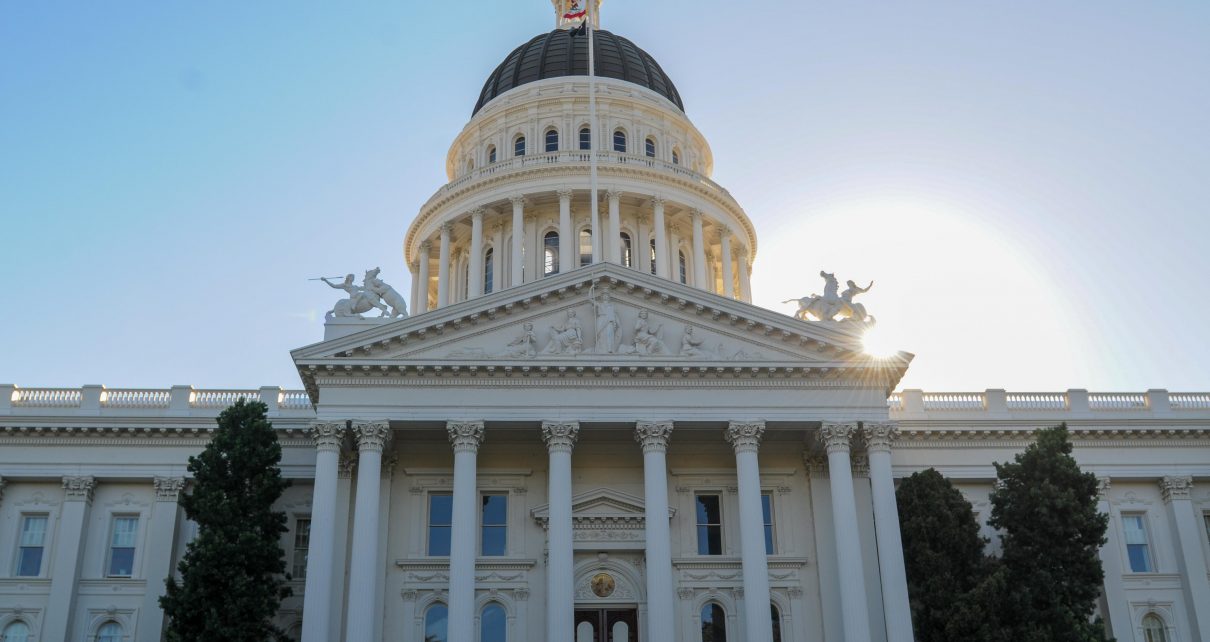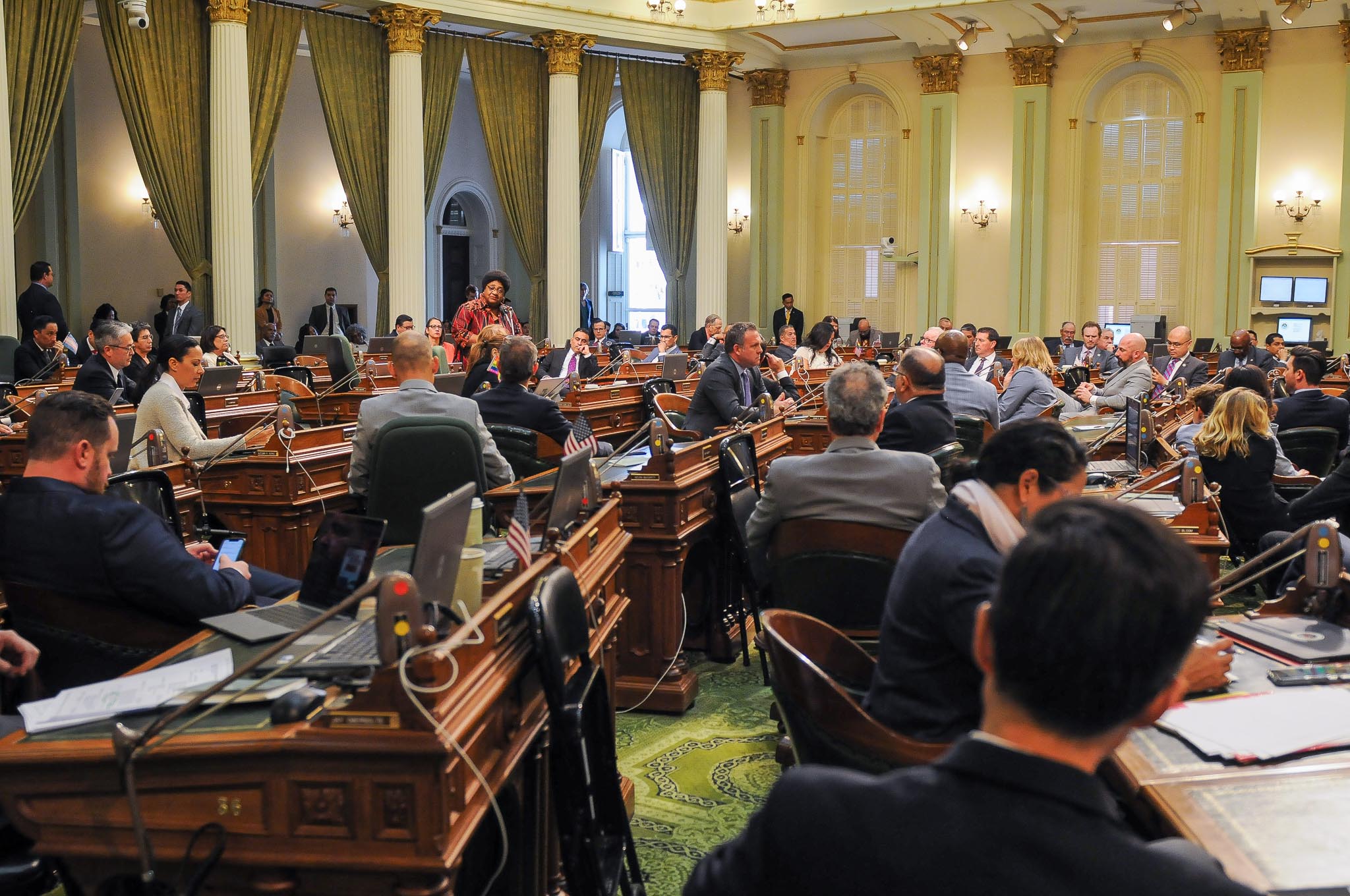
California State Capitol. (Photo: Kevin Sanders for California Globe)
What Is ‘Batching’ of Bills in the California Legislature
The Assembly utilizes one consent calendar; the Senate utilizes a consent calendar and a ‘special consent’ calendar.
By Chris Micheli, May 27, 2022 6:30 am
For those tuning into the Assembly Floor Sessions during deadline weeks, you are likely to hear the term “batching.” What does that term mean?
Batching
Batching means putting together a group of bills for consideration in a single motion, or vote. The Assembly reviews the recommendations of the Democratic and Republican Caucuses and, where appropriate, “batches” together a group of bills and takes a single vote on that batch of bills. The first requirement is that both party Caucuses have a “support recommendation” on the bills. The second requirement, naturally, is whether both parties agree to the measures that are included in that “batch” being subject to a single vote.
How does batching differ from the consent calendar?
Consent
There are several specific rules related to measures on consent. Under the Joint Rules, there are the following:
JR 22.1 deals with “Consent Calendar: Uncontested Bills.” This provides that each standing committee may report an uncontested bill out of committee with the recommendation that it be placed on the Consent Calendar. Three requirements must be met: It passed committee by unanimous vote; it has no opposition expressed at the committee hearing; and, it has been requested by the author to be placed on consent.
JR 22.2 deals with “Consent Calendar.” This provides that, following its second reading and the adoption of any committee amendments, any bill certified by the committee chairperson as an uncontested bill is placed on the Consent Calendar, and is known as a “Consent Calendar bill.” Any legislator can object to a bill being on the Consent Calendar. Consent Calendar bills may be considered on the second legislative day following the day the bill was placed on the Consent Calendar.
JR 22.3 deals with “Consideration of Bills on Consent Calendar.” A bill on the Consent Calendar is not debatable. And, the Consent Calendar is considered as the last order of business on the Daily File.
The Assembly utilizes one consent calendar. Assembly Rule 56.7 deals with “Consent Calendar.” It requires that, if the chairperson of a committee or subcommittee, in advance of a hearing, proposes to recommend any bills for consideration on the Consent Calendar without hearing testimony on those bills in committee, a list of those bills must be made available to the public at the same time as the committee analysis required.
AR 71 deals with “Uncontested Bills.” It specifies that a bill may not be placed on the Assembly Consent Calendar unless it has met the requirements of Joint Rule 22.1 (discussed above) with respect to each Assembly standing committee to which the bill has been referred. The basic rule is that the committee places the bill on the consent calendar initially.
The Senate, on the other hand, utilizes a consent calendar and a “special consent” calendar. Senate Rule 28.3 deals with “Consent Calendar.” It provides that, if a Senate bill or Assembly bill is amended in the Senate to create a new bill or to rewrite the bill, a standing committee may not place the bill on its consent calendar, and may not report the bill out of committee with the recommendation that it be placed on the consent calendar on the floor. The Senate operates its consent calendar similar to the Assembly.
Special Consent
In addition to its Consent Calendar, the Senate also utilizes a “Special Consent Calendar.” The requirement for a bill to be on the Senate’s Special Consent Calendar is that there is no opposition and that both party caucuses have a “support recommendation” on the bills. The Special Consent Calendar is designated with a date upon which the measures will be voted on by the Senate. In essence, the Assembly’s use of “batching” is similar to the Senate’s “special consent” calendar.
- Frequently Asked Questions on California Legislature Conducting Its Work - April 20, 2024
- What Information Has to Be on the LegInfo Website? - April 19, 2024
- New Assembly Bill Would Ban NDAs in Legislative Negotiations - April 19, 2024




